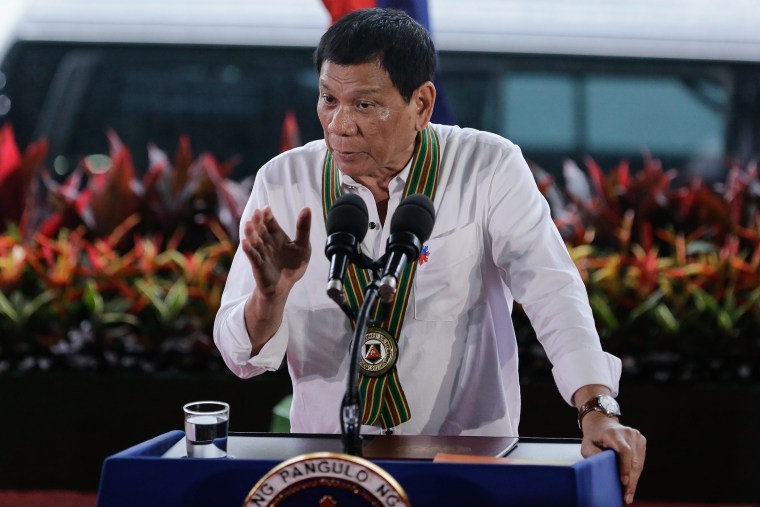Just over the last couple of weeks, Donald trump has congratulated Turkey for abandoning democracy, offered tacit support for a fascist presidential candidate in France, and publicly praised North Korea's communist dictator.What could the Republican president do to make matters worse? He could embrace the murderous autocrat who leads the Philippines.
President Donald Trump invited controversial Philippine President Rodrigo Duterte to the White House during a "very friendly" call Saturday, the White House said in a statement.According to the White House, Trump "enjoyed the conversation," which addressed concerns over North Korea. The president also looked forward to visiting the Philippines in November for two summits with other Asian nations, it added.
In early December, during the presidential transition process in the U.S., Trump not only offered some praise of Duterte, he also spoke to the Filipino leader and raised the prospect of a bilateral meeting in 2017.At the time, it seemed like yet another example of Trump not knowing what he was doing, and few expected such a meeting to actually take place. And yet, here we are.For Americans unfamiliar with Duterte, the authoritarian Filipino president has been accused of a series of extrajudicial killings, and just last week, a lawyer in the Philippines asked the International Criminal Court in The Hague to charge Duterte and officials in his government "with mass murder and crimes against humanity."In addition to accusations about relying on death squads in his native country, Duterte has threatened to assassinate Filipino journalists, boasted about personally executing people without so much as a hint of due process, and before taking office, spoke openly about his willingness to commit rape.Let's also not overlook the time Duterte compared himself to Adolf Hitler.Common sense and the traditional norms of the United States suggest the White House would not want anything to do with such an individual. Donald Trump, however, had a "very friendly" chat with Duterte over the weekend, and will meet the Filipino leader later this year.Trump's affection for authoritarian strongmen is not new -- before the election, Trump was arguably the only American politician in recent memory to praise Saddam Hussein -- but his list of admired autocrats appears to be growing.If there's a defense for this, I can't think of it. Think about the message this sends to Duterte, who's now effectively been told the U.S. government is comfortable with his campaign of extrajudicial killings, and to the rest of the world, which used to think of America as a place that took human-rights abuses seriously.John Sifton, the Asia director of Human Rights Watch, told the New York Times over the weekend, "Although the traits of his personality likely make it impossible, Trump should be ashamed of himself."Postscript: It's worth noting for context that Trump's business, not long ago, struck a deal with Duterte’s U.S. trade envoy. The president's private-sector venture recently opened a building in Manila, the capital of the Philippines, and local advertising relies on Trump's daughter as a model.Whether the conflict of interest influenced Trump's embrace of Duterte is unclear.
